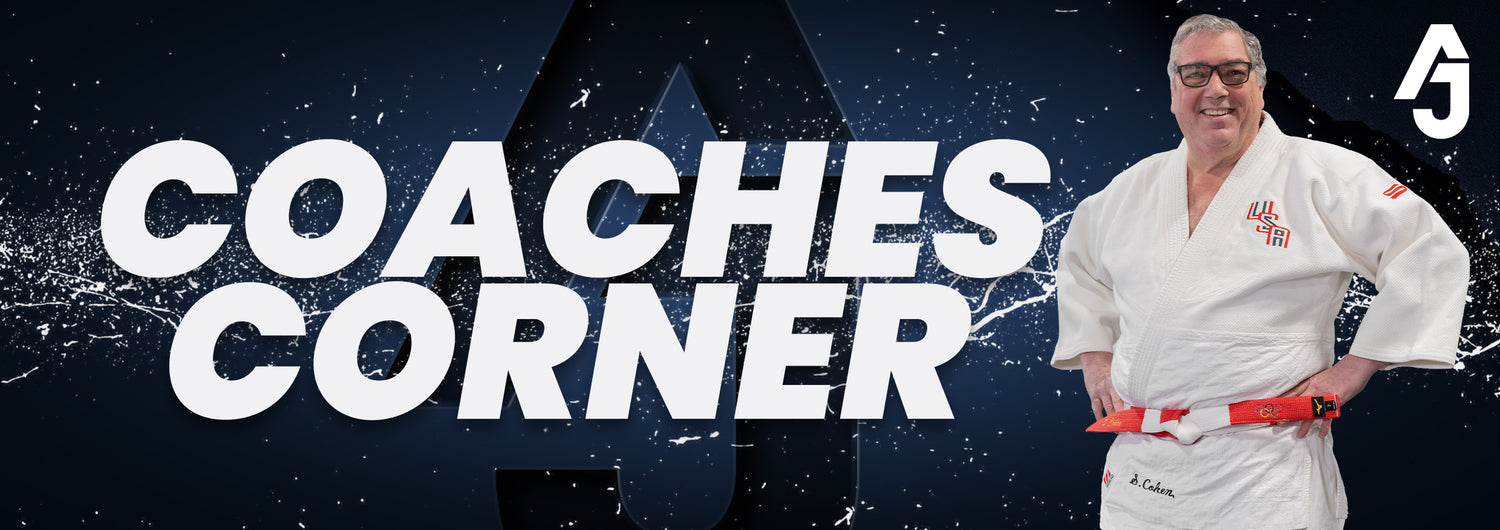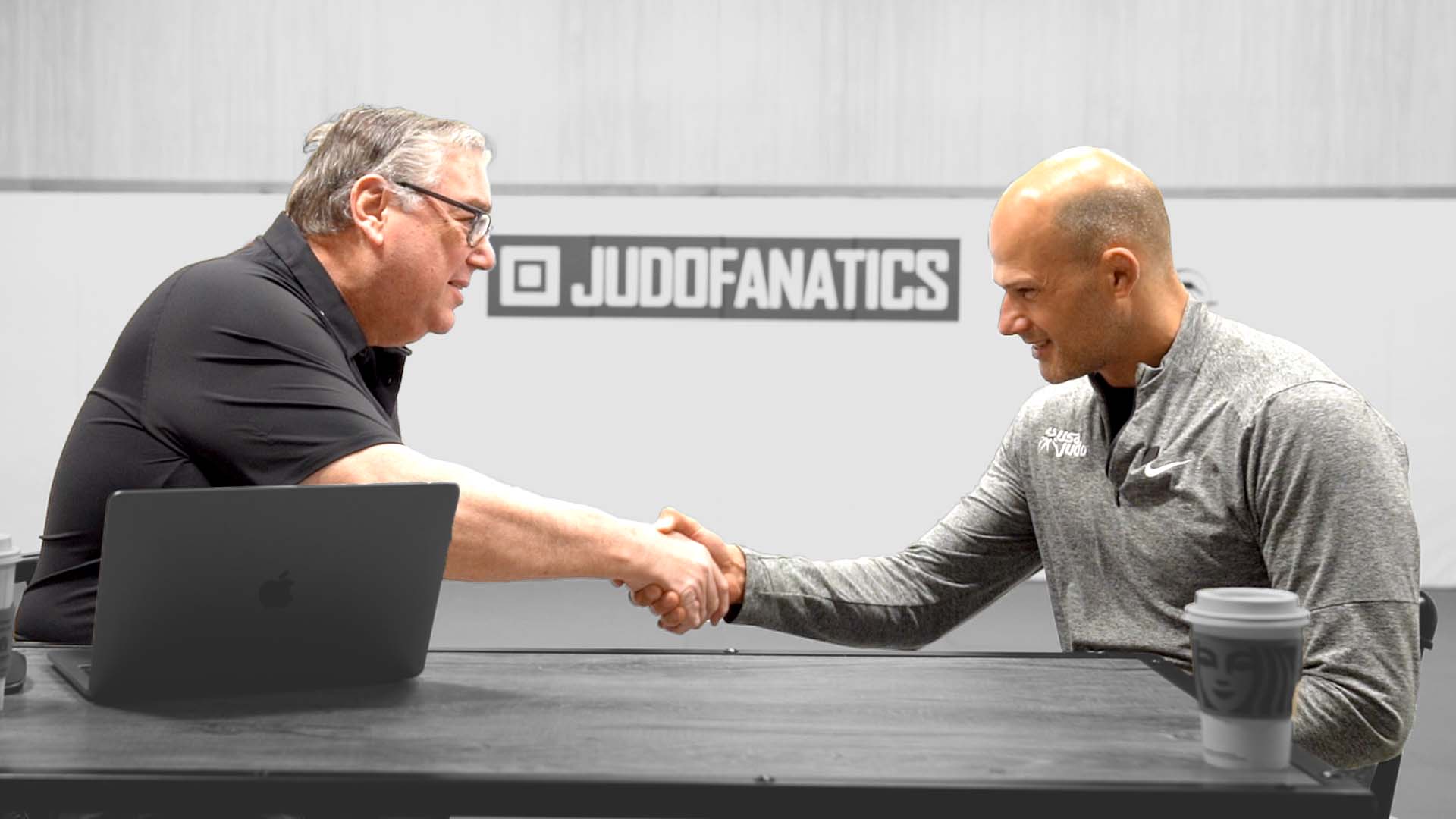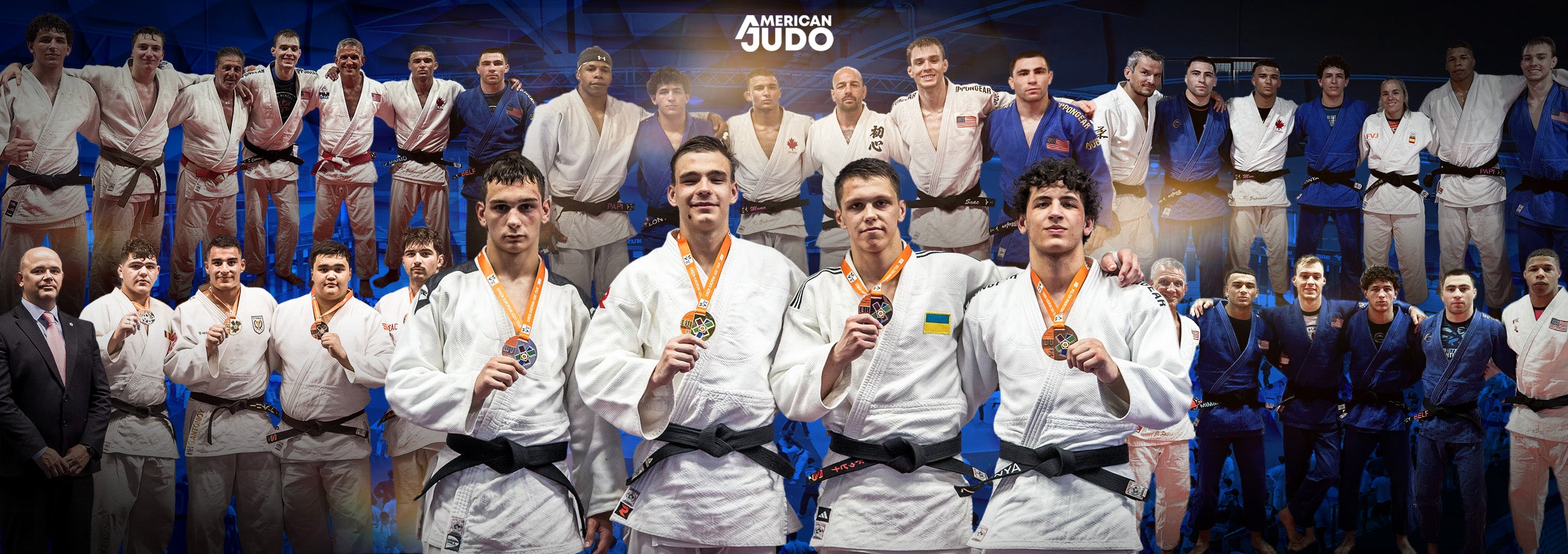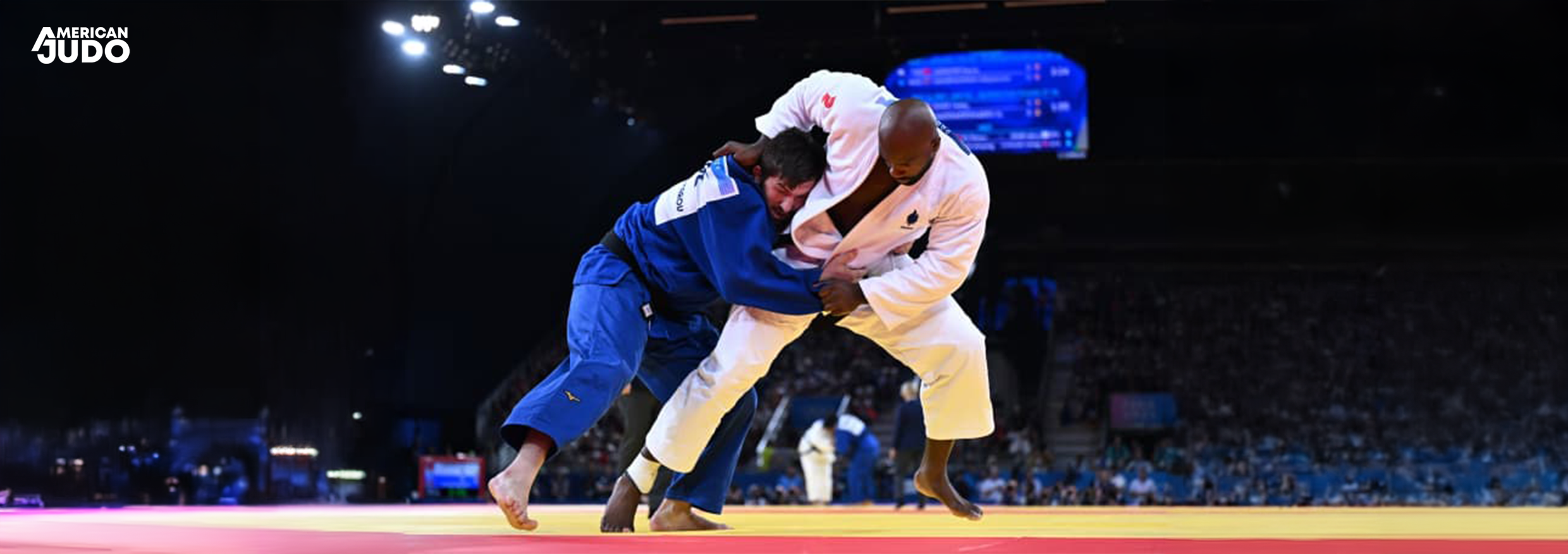For this edition, I want to talk about the coaching shift that occurs as you continue to spend time and develop your athletes at the one year mark. Ideally, by this time, you were diligent during their development and built foundational skills that will prepare them for the next stage of learning and growth.
Some of the often overlooked skills …
- How to grab a gi
- Where to grab the gi
- How to stand
- How to move
- How to pull and lift (kuzushi)
- How to sweep (foot turned)
- How to reap (toe pointed)
- Balance and agility (standing and hoping on one foot)
- Posture
- Ukemi, being thrown by another judoka.
Think about when is the last time you actually took the time to explain to a student how to grab a gi. We often let our students’ eyeballs pick up on the little things like that, but if neglected, it will be a challenge to have them relearn the proper technique. Hence, why these fundamentals must continue to be reinforced with drills, games, and all aspects of practice.
THE GAME
Let’s dive into the first part here - “The Game of Judo." There are things that you will start to teach now that will take years to fully develop and comprehend. There will also be things that you will teach now that will be grasped and used immediately. Both are important! Let’s dive into breaking down some of those long term vs short term game development.
LONG TERM
There are two things that I start teaching my students at a young age that I know will take years to learn and understand but it is necessary to expose them to the thought of these topics and using specific coaching language to have this stay top of mind during practice…
These two skills take years to learn and do not have to be reinforced daily or weekly but should be mentioned when you are evaluating a practice or a competition and as you see fit. (I will go into more detail on these two in my next letter.)
SHORT TERM
Most, if not all, students make the decision of what technique they are going to do before they even attempt to do it. You will see students pushing against each other trying to do Osoto Gari or one student trying a Seio Nage when their partner is leaning back. This is very common. Teach your students to feel the direction their partner is leaning and choose the best technique to apply. Because these kids are at the early stages of learning judo the opportunities will be exaggerated and it will be fun and easy to learn. Don’t forget that you should be stressing posture in order to teach your student not to lean either forward or backward.
As a coach of young students, in order for them to learn you must be watching and engaging all the time. You should be adjusting and correcting at the time the mistakes are made. It is important to use your best judgment on how often to interrupt the student during the practice. Remember to give the student time to learn and that it should be done with positive reinforcement. Don’t wait until the end of practice when the situation was 5 rounds ago and it is no longer top of mind.
Always manage your expectations, understand that kids learn at a different pace, and this is hard for some kids. It is our responsibility to ensure that all of our students have the best opportunity to learn.
It is my hope as Head Coach at the American Judo System that we can bring coaches together from all levels, dojos and the country and give you access to the knowledge we have. Our team is full of coaches who are eager to grow the sport from the Basic Level to the Elite Level. We are also unique in the fact that Jimmy Pedro and I, have experience in coaching all the areas aforementioned (Day One to Olympic Podium) and we are excited to share our experience and systems with you. I also hope that you will share your knowledge and experience with us because if we are going to grow Judo we must work together!
Thank you for your time and I look forward to working with you!
See you on the tatami!
Steve Cohen
US Olympian & US Olympic Coach
Head Coach, American Judo System
P.S. Please email me at steve@americanjudo.com with any questions, comments, or topics you may want me to cover.
About Steve Cohen
Steve Cohen has been doing judo for over 60 years. Starting judo at the age of 5, Steve had a long successful competitive career ending in 1988 at the Seoul, Korea Olympics. Steve along with his brother, Irwin ran a successful judo program in Illinois producing the first Olympic Silver Medalist and first Junior World Champion for the United States. They also had many athletes on Pan American Games Teams, World Teams, and Olympic Teams. Throughout the years they ran local, regional, and national tournaments. Every Summer, they held a camp where the best youth and junior judo athletes in the country would come to learn and develop, and the best senior judo athletes would attend, teach, and train. Many of those young athletes that attended went on to great success as competitors. Steve became the National Coach for the United States in the 1990’s becoming the Head Junior National Coach for 4 years and following that became the Head Senior National Coach which included being named the Head Coach for the 2000 US Olympic Team. Steve is still active in coaching and developing athletes out of Illinois and works with athletes all over the country.



